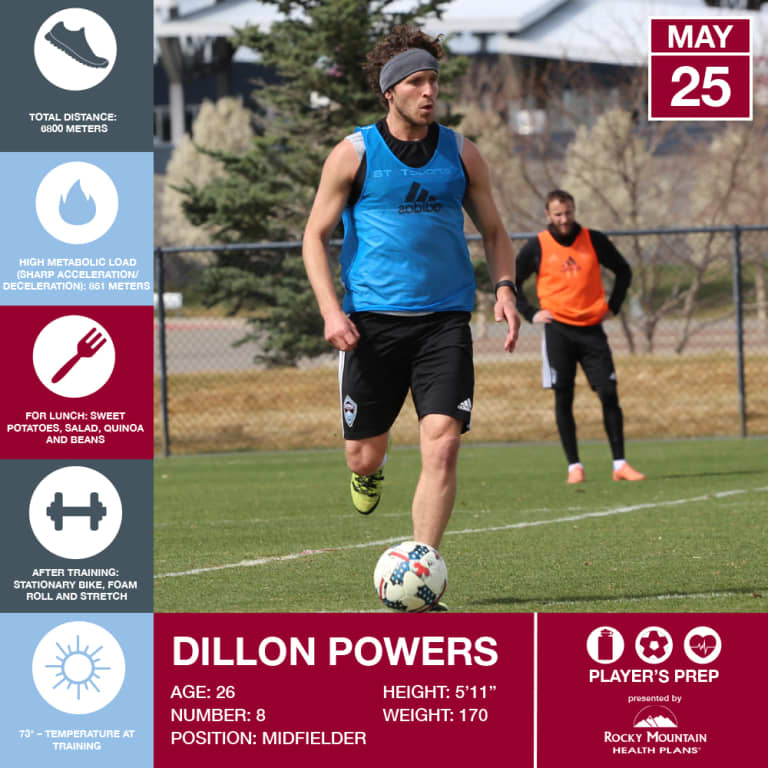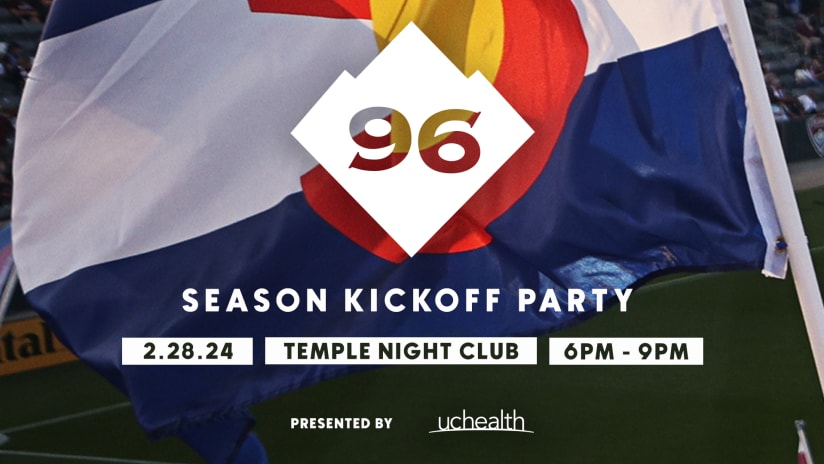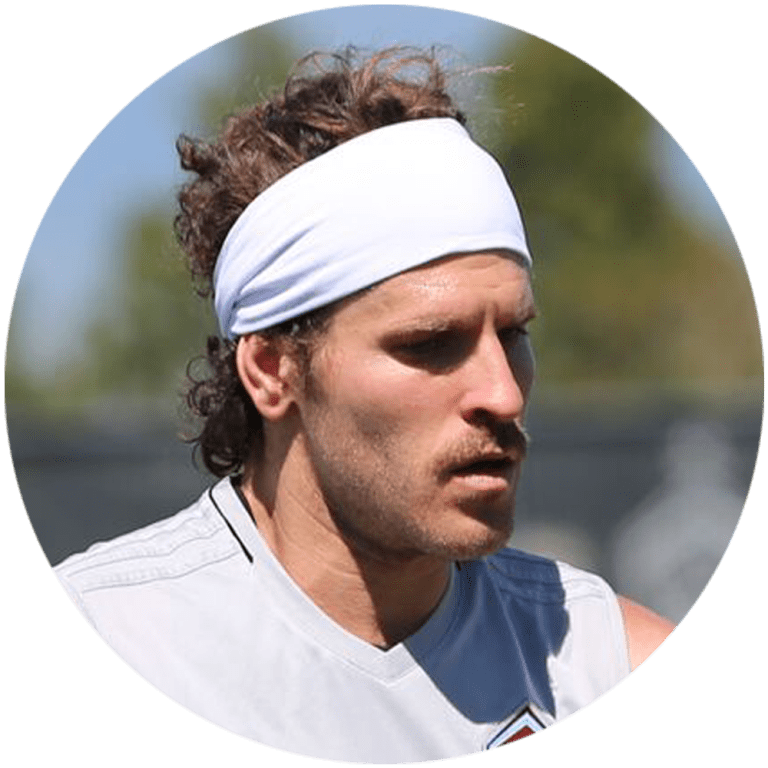
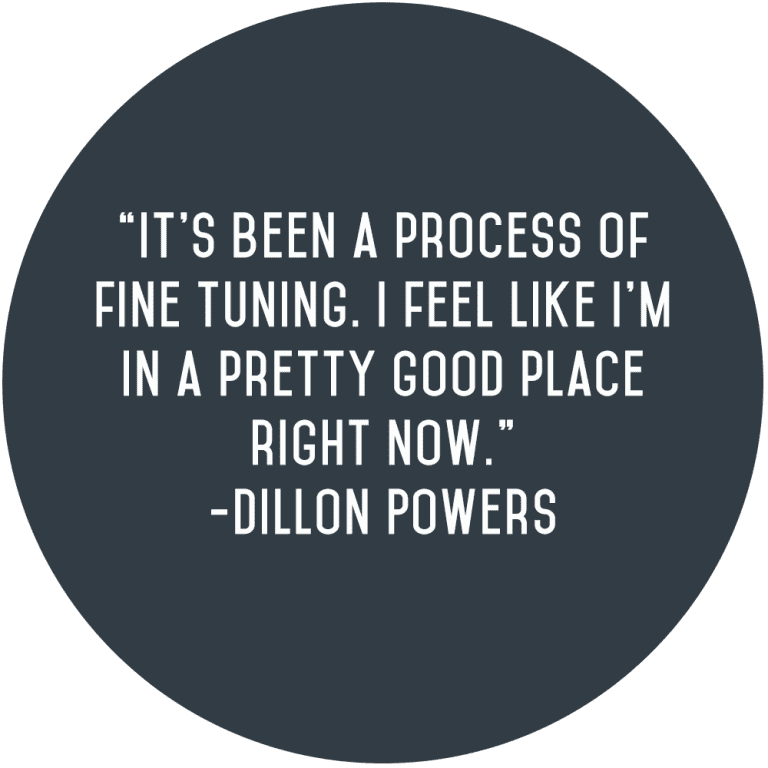
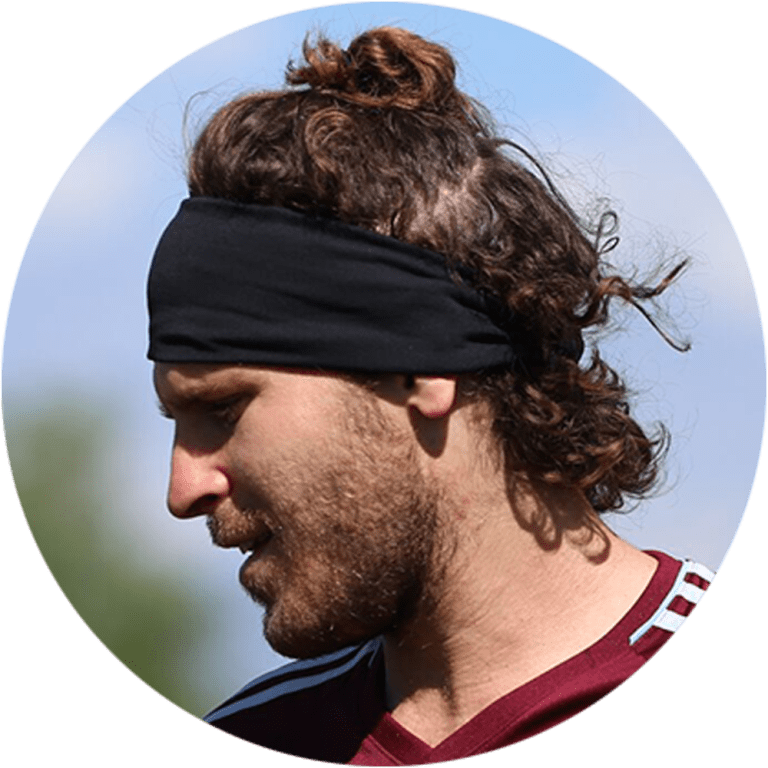
Q: Take me through a typical day, what does it look like first thing in the morning?
A: Pretty much every day I start off with a green smoothie, which usually consists of banana, apple, kale, maybe some broccoli sprouts. Over the years I’ve felt like that’s what gives me feeling the best in the morning. With that smoothie I get some fruits and some vegetables, some carbs. It’s a great way to start the day as far as food goes. Sometimes I do steel cut oatmeal if I know it’s going to be a heavier day.
As far as training, each practice is a little bit different. For us, the early part of the week is more recovery-based, while the middle section is getting the workload of the week done, the end of the week dials back so we’re really prepared for the game. More rest and recovery toward the end of the week. My diet varies based on the energy that I’ll put out in those sessions.
From a standpoint of preparing my body and mind I meditate every morning just to get in a good headspace. Sometimes it involves visualization about soccer or the upcoming training. A few times a week I’ll watch video at home, try and work on some specific things. When it comes to preparing for the actual training session, I’ve developed a pretty solid and extensive ‘prehab’ routine. So not rehab, but prehab. A lot of soccer players have tight hips, I’m no exception, so a lot of stuff that I do is to open up my hips. I’ve found that once I started implementing this routine I’ve really only missed one game because I was injured. I’ve been lucky enough to be around good people over the years that can add little bits to my routine or subtract some. I’m always looking to perfect things in any way I can.
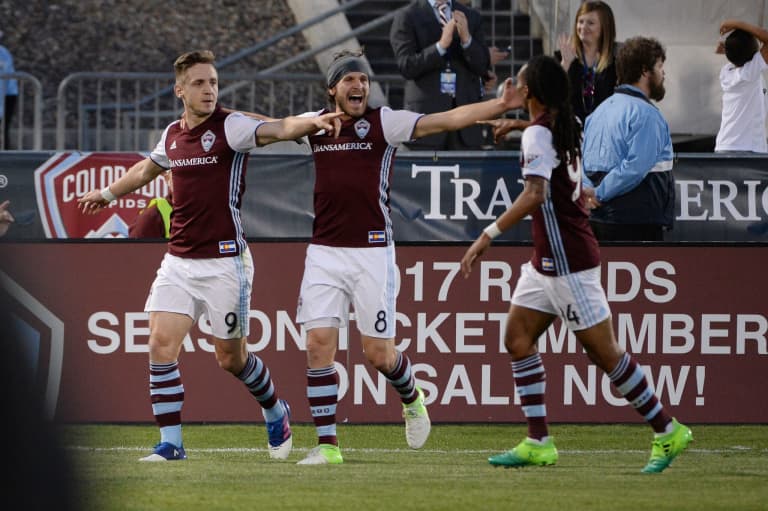
Q: What about recovery from a typical training session? I’m always impressed by how hard you guys train day in and day out. How are you not worn out by the end of a week?
A: The hardest thing is finding a balance. A key part to development is putting in extra work and focusing on what it is you want to focus on. In the back of the mind you have to understand that the more you work the harder it’s going to be to recover. I definitely try to strike a balance between doing extra work but also saving your legs for the weekend. The club does a really good job monitoring that through glycogen levels and workload. They will do some of that monitoring and balancing for us.
As far as recovering post-training or after a match, one the things I’ve discovered that has helped tremendously over the last few years has been biking after training on a stationary bike. It really helps to flush the legs out for 10-20 minutes. Really light effort, but it helps your lactic acid come down. You’ll feel a lot better the next day. So I’ll make a protein and carb shake in the morning, drink that right after training. After that I jump right on the bike, then I stretch with some bands for 10 minutes, foam roll. That’s followed by an ice bath, contrast bath. Finally, I’ll jump in a pair of recovery boots that are designed to reduce inflammation and give some compression. That’s my ideal recovery routine right there. Every little thing helps and in this profession the extra 1% can make the difference.
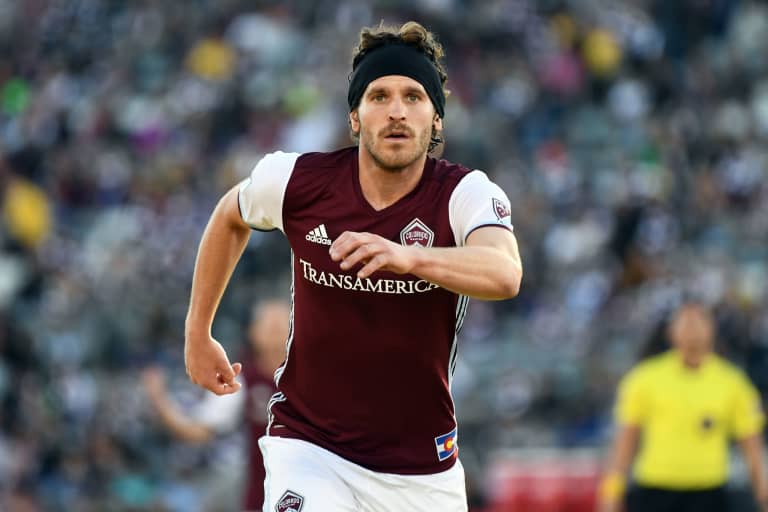
Q: As far as diet goes, how have you dialed in what works for you over the years?
A: It’s definitely been a process for me. I’ve been on a vegan (plant-based) diet for just about two years. When you start out it’s really just trial and error. Just finding out what you need as an athlete. I think some of that comes from the nutrition advice we get from the club, some of that comes from outside resources like books or hearing from other plant-based athletes. It’s been a process of fine tuning. I feel like I’m in a pretty good place right now.
Q: What about travel, it is hard to get the things you need when the team is on the road?
A: Travel does make it a little bit more challenging. It’s easy to eat crappy in the airport. So one of the things that makes it a little bit easier is just planning ahead, thinking ahead. If we’re about to travel in the afternoon and I have time in the morning I’ll go pick up a salad for the plane ride or some fruit or some nuts. Something that I know is going to be good for me and is not going to throw my day off. It’s important to maintain good nutrition because there’s no excuse. The other team that we’re playing that’s at home is going to have good nutrition and be ready to go. We have to hold ourselves to just as high of a standard even though we’re traveling.
Q: For a match day, do you have a different routine? Many times you’re forced to sit around all day.
A: We do have to wait around because the game is typically in the evening so we pretty much have the entire day. I personally think it’s not good to just sit around the whole day. I think it’s good to partake in some sort of activity whether that’s walking, or going for a jog and stretch. I’ve done light yoga on game days. Not the hot yoga, but just a light stretch. I think it’s good to get the blood flowing a little bit. It also helps take your mind off the game a little bit and kills a little bit of time.
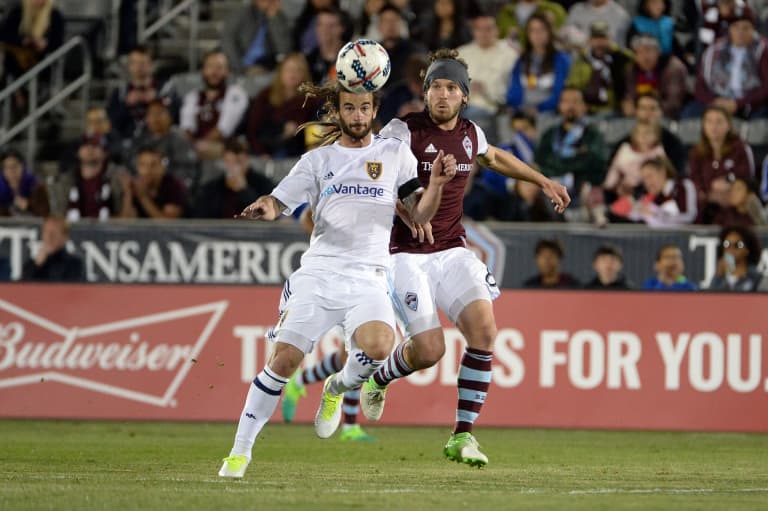
Q: Immediately after a match are you already in the mindset of preparing for the next match midweek or the following weekend?
A: If it’s a quick turnaround and we play midweek I think the immediate recovery routine does become more imperative. Sometimes if you have a week between games it’s easy to say ‘I’ll come in a take care of my recovery tomorrow, the day after the match’. I try stay as consistent as possible with the routine that I mentioned earlier. That routine has served me well so I pretty much just try to do it every day.
Q: What about offseason, how do you approach a typical offseason?
A: I think it’s very important to take some time off. Mentally check out, physically check out. My guideline is to do that for two weeks. After that it’s really just trying to stay in shape. One of the ways I do that is to try different and new ways to exercise. During the season it’s hard to try new things or do too much outside of your routine because you do have to save the legs and always have an eye on the weekend. This past offseason I went to a few Pilates classes that were really challenging, actually. I’m always looking for new ways to do things and new things to try. Cross training or maybe trying some new sports. My diet stays pretty similar for the most part, maybe I’m not eating quite as much because there isn’t that requirement to replenish as much. I think the offseason in general is a good time to experiment and try new things whether that is diet or exercise.
Q: What about other professional athletes, how much do you try to learn from them and implement what they do in to your routine?
A: Other athletes are a big source for me as far as expanding what I can do. What I’ve developed is a good routine but it’s not perfect. I’m always trying to up the game. I listen to other athletes talk about their diet when I can. I’ve taken a lot from different people over the years. Rich Roll is an ultra-endurance athlete, he’s been a big inspiration for me. I actually got to meet him during preseason. I’m always trying to tweak things and it’s very interesting to see how other athletes do things.
Q: What advice would you give to someone trying to live a slightly healthier lifestyle?
A: I think it’s important to exercise in some way every day one way or another. Going on a run, going to yoga class, going to Pilates class, lifting weights. I think everyone could eat more whole foods. I think that’s a simple remedy to be more healthy.
